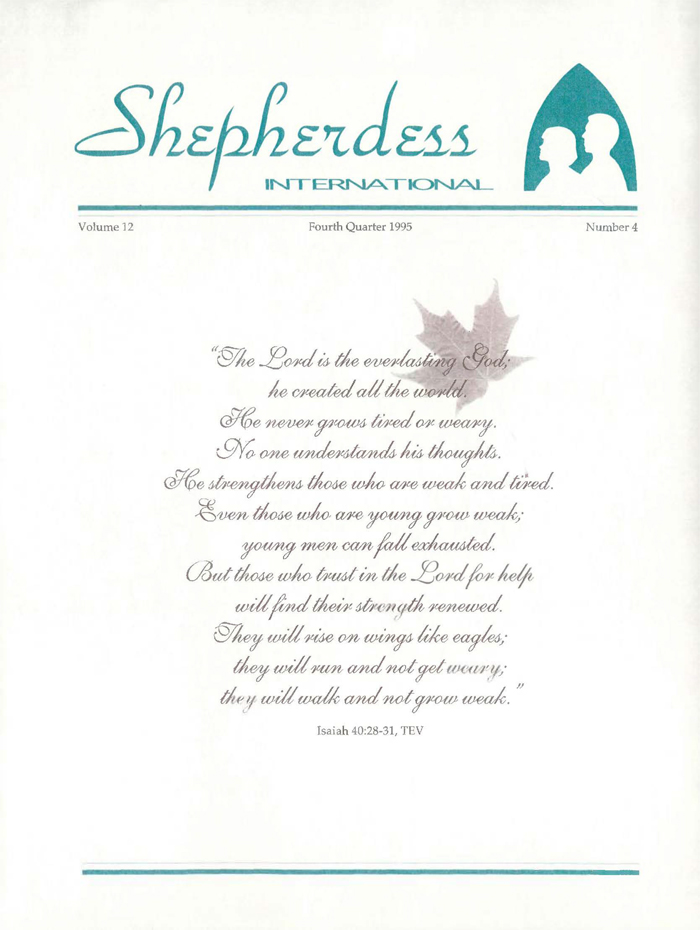It was a cold, ten-degree Christmas Eve when the Walchushauser family spread a bale of straw on the porch and wiggled into their sleeping bags to spend the night. Huddled together, they discovered that the story of how Jesus first entered the world took on a warm new dimension. The mu ltisensory drama was so vivid that they've slept on the porch every Christmas since.
Several states away, the Simpson children are nervously singing, reciting their poems, and presenting "mini-pageants" prepared again for this year's family Christmas gathering.
In yet another home, the Carters return from the annual Christmas cantata at church to light the eight candles surrounding the carved, miniature nativity scene on their coffee table. As the rising heat from the candles makes the small figures turn on their base, the family joins hands and sings, "Happy birthday, dear Jesus ..." The birthday cake is cut and enjoyed in honor of His birth.
Traditions like these are the threads from which our most valued memories are woven—the customs and practices which call us aside from the ordinary routines to focus on someone or something precious to us. Family traditions are enormously important because they help stabilize and hold a family together from year to year and generation to generation. They help children absorb the beliefs and values we want them to enjoy and pass on.
Some family traditions occur more frequently than just the holidays. The Sunday evening dinner menu at the Schaffers' is always cinnamon toast, hot chocolate, and conversation. No one misses it. It's a cherished family tradition, and simple joys like these help keep families stuck tightly together.
A helpful family exercise some evening would be to clear away the dinner dishes, provide paper and pencils, and ask each person to list those activities which he or she regards as traditions in your family. The answers may surprise you and will likely range beyond holiday times to encompass many regular facets of family living.
Once you've pooled your answers, evaluate what you find. Two criteria are: 1) Do these traditions usually involve everyone in the preparing as well as the participating? Those that do will more likely be valued and preserved into the next generation. 2) Does the tradition emphasize authentic spiritual and human values rather than expensive gifts and activities? Traditions worth keeping are usually expensive only in terms of time.
Be sure that several of your family's important traditions include church activities and times with other friends in the Body of Christ. Many traditions can meet the needs of the sick or elderly, missionaries, and single parents and their children.
Family traditions can't be bought no matter how wealthy you are. These treasures are acquired simply, installment by installment, as time passes. The strength of values and the warmth of memories they carry will help you and your descendants through good and bad times. Meaningful family traditions, holiday or otherwise, are worth the effort!
